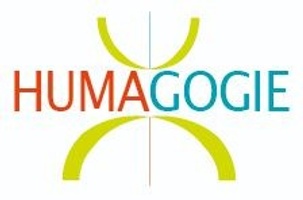
ALARM DISTRESS BABY SCALE (ADBB), DETECT AND EVALUATE THE RELATIONAL WITHDRAWAL OF BABIES BETWEEN 0 AND 24 MONTHS - Self-Training
Advanced self training (online)
Besoin d’adapter cette formation à vos besoins ?
N’hésitez pas à nous contacter afin d’obtenir un devis sur mesure !
Formation créée le 05/09/2024. Dernière mise à jour le 19/11/2024.
Version du programme : 1
Programme de la formation
The ADBB is a scale for assessing relational withdrawal in babies between 0 and 24 months of age, with 8 observation items. It is an observation aid validated by research The objective of the training is to train you in the assessment of relational withdrawal in babies between 0 and 24 months for the purposes of prevention, early detection, research and monitoring under intervention by health, mental health, childhood and protection personnel. from childhood. Why learn to assess relational withdrawal? Withdrawal is a major component of the baby’s response to the altered relationship that occurs during the still-face experience or clinically during maternal depression. Withdrawal behaviour is also one of the most stable during development, despite the major changes that occur in the first three years of life. Early relational withdrawal behaviour is therefore an important warning signal. The baby’s defensive repertoire is indeed initially quite limited, and focuses mainly on protest and withdrawal. Withdrawal is more difficult to detect than protest, and yet it occurs in many situations of early psychopathology, in an overt or incidental way, whether it is a condition caused initially by a relational disorder, or by an organic disorder, as in intense and long-lasting pain. What is ADBB? The ADBB scale is an 8-item scale for assessing relational withdrawal in babies between 0 and 24 months of age. It is an observation aid grid validated by research. The ADBB was developed by Pr. A. Guedeney (child psychiatrist, Hôpital Bichat Claude Bernard, AP/HP Paris). The Baby Distress Alarm Scale (ADBB) is an observation aid for child professionals (pediatricians, child psychiatrists, psychologists, childcare workers, educators etc…). It is used in clinics (screening), for the evaluation of interventions, for research. Methods: self-training with access to office hour online (on Zoom) available every month (except august) with the trainer and forum access to ask question. Estimated overall duration: 35 hours This training is 100% online and self-directed training. We explain how it works
Objectifs de la formation
- Define relational withdrawal,
- Understand the links between relational withdrawal and developmental risk,
- Cite key findings from research on relational withdrawal and the validity of the scale,
- Cite and define each of the items on the ADBB scale,
- Be aware of the legal, ethical and technical requirements for conducting an assessment,
- To detect a baby in relational withdrawal in all assessment situations in a reliable manner,
- Assess the severity of relational withdrawal in a reliable manner.
Profil des bénéficiaires
- psychologists,
- pediatricians
- doctors
- child psychiatrists
- childcare workers
- child and family psychotherapists
- special educators
- psychometricians
- Knowledge of the normal development of the child between 0 and 2 years old
- Work with babies from 0 to 24 months
Contenu de la formation
-
1 - Introduction and The theoretical foundations of the ADBB scale
-
2- The manual and To build a representation of relational withdrawal
-
3- Learn how to use the scale
-
4- Deepening
-
5- Difficult items and revaluation
-
6 - Case studies
-
7- REVISIONS
-
8- CERTIFICATION
Alexandra Deprez, SEO B-Families: Doctor in psychology, certified trainer for the ADBB, expert trainer and pedagogical tutor. Child and adolescent psychologist. Trained in perinatal psychopathology and different attachment assessment tools (CARE-Index, Adult Attachment Interview, Strange Situation, Crowell Procedure..) and different modalities of informed attachment and trauma therapy interventions: Theraplay, EMDR etc. Jocelyne Guillon, SEO Humagogie: instructional designer, administrative tutor (management of registrations and administrative documents of the training) and Learning Community Manager.
- At the end of the training course, you will receive a certificate of completion of the training course and a private certificate of achievement indicating your level of ADBB scale use (clinical, expert or research) subject to :
- Learning activities are monitored throughout the course by recording connection times on the platform,
- Recording your involvement in the learning community (forum) and the completion of educational activities and exercises.
- Answer to the Quiz
- Submit your file for the Final Attestation (ADBB private certification)
- PRATICAL DETAILS OF THIS SELF TRAINING COURSE :
- HOW DOES THE ONLINE TRAINING WORK? Online training has been designed to ensure that : - your learning is integrated into your clinical practice - you feel confident in using the ADBB. As well as benefiting from the flexibility of distance learning, you will be supported in your learning by a forum and office hours if you want to discuss with the trainer, face to face.
- TRAINING PLATFORM (your personal space where you are at the moment) You will have access to this personal space on the Digiforma application for administrative purposes and to access learning resources. It contains the programme, exercises to be completed and submitted, videos to be studied and course materials.... This space is also used to validate and certify your participation with a record of your connection times. IT MUST NOT BE SHARED!
- THE FORUM The forum allows you to ask your questions to the teaching team as you apply the new learning in your practice, and to add resources according to your needs and questions. You will find it on the platform. The trainer will answer questions relating to the content of the course. If you need technical help, ask to info@humagogie.fr
- SELF-TRAINING The training must be completed in a specific order that you must follow. The training will require about 35 hours of work, which is approximately 2 hours of work per week if you complete this training in 4 months (the access to the training is limited to 4 months, so you must have finish at this time). However, you can adapt this pace to your constraints and schedule, which is the advantage of an online self-paced training. Please note that to move from one lesson to another, you must watch the videos in full (until the last second ;-)) so that the computer records your progress and also respond to the quizzes.
- In each module, you will be given a challenge to complete. This consists of learning content to study and baby videos to assess. The challenge consists of carrying out the following tasks: - Observe children according to the ADBB items - Score using the scale - Formulate clinical hypotheses - Submit your analysis to the community and ask questions Each video takes about half an hour, observation and submission on the platform. There are approximately 36 videos to watch. The progression of the videos is designed so that you can, little by little, build up a reliable representation of what relational withdrawal is in a baby.
- OWNERSHIP OF CONTENT All teaching material presented, whether in the form of videos, course materials or practical workshops, is the property of the B-Families and Humagogie training organisations. The trainee undertakes on his or her honour to use them solely for personal training and exclusively for professional purposes and not to exploit them in any way that could harm or cause prejudice or competition to the training organisations, B-Families and Humagogie. See details in the general conditions of use on the website. The materials and all the content of the training courses, as well as the educational programme as a whole, are protected by the Code de la propriété́ intellectuelle (Intellectual Property Code). Pursuant to article L335-3 of this Code, ‘any reproduction, representation or distribution, by whatever means, of a work of the mind in violation of the author's rights’ constitutes an infringement of copyright. Copying, representing, distributing or using any part of the content or the course requires the explicit agreement of the author, the trainer and Humagogie.
- ADBB and M-ADBB Handbook
- Vidéos
- On-line availability of support documents of the training.
Qualité et satisfaction
Modalités de certification
- Final Attestation (private certification) It is mandatory and involves the rating of 15 ADBB videos and the submission of your results to the trainer on an Excel file. Your results will be subject to a statistical test to determine your reliability in evaluating relational withdrawal. A final certificate will be given to you at the end of the training, informing you of the conditions under which you can use the ADBB Scale based on your results. This certificate is valid for a period of two years. Why this delay? Because a fine observation skill, if not maintained, diminishes with time. At the end of the training, you will be offered simple ways to maintain your ADBB skill, such as continuing with an online supervision group or joining the next ADBB scale training session as a peer tutor. The ADBB private certification is valid for 2 years, in fact, this knowledge has to be updated regularly and after 2 years it is possible that one has developed biases and feedback from an ADBB expert is necessary. You will be offered́ simple ways to maintain your skills in using the ADBB scale, such as: - By taking part in a 3-hour online ADBB scale reflective workshop, at least once every 2 years (if you have obtained private certification in the use of the ADBB scale - fee attached for your information to the training and on request). This workshop is a process to support changes in the implementation of the ADBB scale and to maintain babies' observation skills. NB It is necessary for participants to bring videos. - or if you wish to take or re-take the certification: by re-registering for a training session (specific reduced rate, including private certification to the ADBB scale) in the use of the ADBB scale. You will then become a peer tutor. This pedagogical process enables them to review content and improve their practices in observing the baby's relational withdrawal, and to refine their use of the ADBB scale. They ask questions related to their practice of observing babies' relational withdrawal and using the ADBB scale. Your questions, which are more in-depth, are a contribution to the other learners. You can help other learners to assimilate the content without giving the answers. You're in a meta (complex) position, which helps learners improve their skills.
- Reliability criteria: • Correlation .60: Use of the ADBB for screening purposes. • Correlation. 80: use of the ADBB for clinical, follow-up intervention, and research purposes. And with this level of reliability, you can qualify for ADBB-wide referent training. • Correlation .90: access to ADBB facilitator training, use of ADBB for expert purposes, possibility of using it for written reports.
- 2 ans
